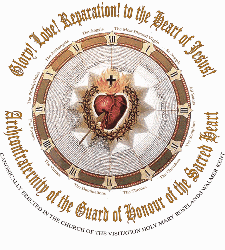One lesson that we can take from these readings is that God comes to us not only in church or when we are praying but when we are working, in fact, God is there always. The call to follow God's will is always there.
The words of Jesus in the gospel are quite shocking. It sounds as though Jesus is saying that family life with its responsibilities is not important. These sayings of Jesus, like His parables, are meant to shock us out of complacency and to make us think. Jesus is saying that following Him is a matter of urgency. It should not be delayed or put off. I don't think He is saying that family life is less important than following Him because it is within family life that He is to be found, just as the will of God was found by Elisha while he was at work plowing.
The closest I've come to plowing is cutting the grass of a football field in western South Dakota. I learned quickly that if I wanted to cut a straight line I needed to look, not down at the mower or my feet but up and ahead, at some point at the end of the field. Looking up and ahead, I was able to cut a straight path.
The same lesson is true for life. As we plow along on our earthly journey, it's important to keep our eyes on our goal, on the end for which we were created, and on Jesus, the One who has already made a path for us to follow. It is urgent for us to not lose track of where we are going, to not get distracted by what's around us, and to not get off the path.
What can help us to not get off track is to make a daily offering of our lives and to periodically remind ourselves of that offering throughout the day. God is to be found everywhere and at all times. Every moment, even our naps and sleep, can be precious when offered to God in accordance with His will. The urgency of Jesus in today's gospel tells us "Don't lose a minute."
 I'm reminded of something that Cardinal Nguyen Van Thuan wrote the day after Saigon fell to the Communists and he was in prison:
I'm reminded of something that Cardinal Nguyen Van Thuan wrote the day after Saigon fell to the Communists and he was in prison:"I am in prison. If I am waiting for the opportune moment to do something truly great, how many times in my life will similar occasions present themselves? No, I will seize the occasions that every day presents, to fulfill ordinary actions in an extraordinary way. Jesus, I will not wait, I will live the present moment, filling it to the brim with love. A straight line is made of millions of tiny points united to each other. My life too is made of millions of seconds and minutes united to each other. I will perfectly arrange every single point, and the line will be straight. I will live perfectly every minute, and my life will be holy. Like you, Jesus, who always did what was pleasing to your Father. Every minute I want to tell you: Jesus I love you."




